Self-driving cars and cybersecurity: What are the risks of car hacking?

Can hackers get into the driver’s seat in autonomous vehicles? The short answer here is a resounding "Yes!" Just last year, researchers/hackers Charlie Miller and Chris Valasek exploited a security issue with the mobile Wi-Fi system available in some Fiat-Chrysler products: They demonstrated they could use a laptop to take control of key vehicle systems in a Jeep Cherokee. Not only were they able to change the audio volume, adjust the air conditioning, and turn on the windshield wipers, they gained control over the transmission -- bringing the vehicle to a stop on the highway.
Luckily, it was all part of a pre-planned demonstration with a writer for Wired magazine, who was driving the car. The hacking part, however, was entirely real. The automaker had to recall 1.4 million vehicles as a result. It also was a wake-up call for both the auto industry and the government, which have teamed up with technology companies to start taking automotive cybersecurity more seriously going forward. They'll have to, too, to be ready for the predicted shift to self-driving vehicles.
Connected cars take data security concerns in new directions
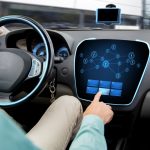
Modern-day computers began trickling into the auto industry with cars like the 1971 Chrysler Imperial, which was one of the first to offer anti-lock brakes controlled by an electronic sensor system. Some 45 years later, the growth in computer-based car technology shows no signs of stopping. A number of Chevy vehicles, for instance, will provide you with a standard mobile Wi-Fi hotspot and 4G LTE connectivity for less than $20,000. And for folks who can afford a Tesla, that brand's "Autopilot" nearly lives up to its name. But as we've seen in other fields, as the potential benefits of connectivity increase, so does the potential for cybercrime.
Consider something as basic as mobile Wi-Fi. While Chevy is the only mainstream brand to supply that technology with 4G connectivity right now, a growing number of premium brands offer it, and a growing number of customers want it. Yet while mobile Wi-Fi gives you the same kind of online access as you'd get at your home or office, it also opens you up to all the same security issues you face there, from worries about passwords and personal data being captured, to concerns over the automakers' own security protocols.
Researchers remotely disable car alarm thanks to weak Wi-Fi security

Security researchers at Pen Test Partners have discovered a vulnerability in Mitsubishi’s plug-in hybrid electric Outlander that could allow potential car thieves to disable the car’s anti-theft alarms.
The security researchers investigate potential vulnerabilities in connected devices through the use of penetration testing and found that the Outlander’s Wi-Fi module can be accessed by anyone within range of the vehicle by connecting to it with their smartphone.
Microsoft has no plans to build a self-driving car

Microsoft won’t be building its own autonomous vehicle, but it will be present in the market, it was confirmed at a conference recently.
Speaking at the Converge Asia conference, Microsoft’s head of business development, Peggy Johnson, made these claims. Instead of building its own car, the company will team up with existing car makers and see to it that the devices get powered by Microsoft’s products.
Self-driving vehicles can’t operate alone -- they haven't got the brains
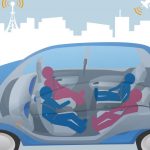
It seems that the not so distant future will soon resemble a scene from I, Robot with everyone from car manufacturers to tech companies developing their own model so they can take a stake in an industry that is expected to be worth $2.81 billion by 2022.
While the prospect of a sci-fi fantasy becoming reality is whipping up excitement for many, the driving industry has been thrown into uncertainty with many predicting that fully automated vehicles will push millions into unemployment, but how realistic is this vision? Considering the current roadblocks ahead, it would appear that the idea of implementing automated only vehicles will soon be parked.
Satechi releases Type-C USB and Standard USB-A Car Charger
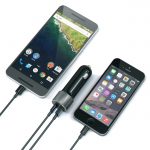
As an iPhone owner, I enjoy driving along in my car and listening to Apple Music. If my smartphone battery starts to drain, I don't panic -- I just grab my Lightning cable car charger and top off the juice. Where some people run into problems, however, is when they have someone else in their car. If their car only has one cigarette lighter, they cannot simultaneously leverage an additional charger for additional devices.
Luckily, I own a brilliant multi-port car charger from VisionTek -- that I highly recommend -- allowing me to share the single port with others. Unfortunately, that charger does not offer USB Type-C, the popular standard of the moment. If you need a charger that offers both Type-A and Type-C, Satechi now has you covered. The company's svelte offering can handle both connector types simultaneously, while taking up very little real estate in your car.
One in three drivers don't know their car has connectivity features
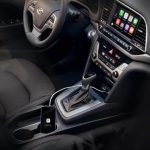
Pretty much every car will have connectivity features within the next four years, but consumers are still unaware of the benefits this new technology brings. Thirty-nine percent of drivers are unaware their car has connectivity features, at all. Manufacturers are also unsure how to use the opportunity to open new revenue streams, busting the doors wide open for technology giants.
Those are the results of a new study conducted by TNS and the BearingPoint Institute. It includes 3,700 owners of connected cars in Europe. One of the highlights of the report is that people are very excited about new features, especially navigation, driver assistance and in-car entertainment.
Tronsmart CC1T charger brings Quick Charge 3.0 in your car [Review]
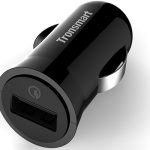
Quick Charge is a wonderful technology that enables your smartphone or tablet to top up its battery at a much faster rate -- up to 400 percent faster, for its latest iteration. But, to enjoy the benefits that Quick Charge has to offer, you will have to use a compatible charger. One may be provided in the box, but if that is not the case there are some very nice wall chargers that are great for the job.
But if you need to charge your smartphone or tablet while driving you will have to pick up a dedicated car charger. I've been testing Tronsmart's CC1T car charger, which is one of the more-basic options with Quick Charge 3.0 support in the company's lineup, and you can read my impressions of it below.
Bracketron TekGrip Power Dock is an elegant smartphone charger and mount for your car
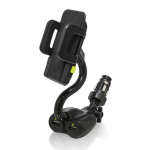
Summertime is on the horizon, which for many folks means traveling by car. Whether taking a short drive to a local beach, or a cross-country family vacation, the warm weather makes for a fun time -- if you have air-conditioning, that is! Nowadays, smartphones make the experience even better, thanks to streaming music and GPS-based mapping services.
Unfortunately, keeping your phone charged and easily accessible is problematic. Wires can easily get tangled, and holding your phone while driving is dangerous. Not to mention, when multiple people are in the car, there may be arguments over who gets to use the 12V outlet. Today, Bracketron unveils the TekGrip Power Dock -- an elegant smartphone charger and mount that may alleviate many of the aforementioned woes.
Google will pay you $20 an hour to sit in a self-driving car

As Google prepares to deploy its self-driving car fleet to Chandler, Arizona, the company is hiring local drivers to test its vehicles.
The company intends to hire local drivers in Arizona who will act as "vehicle safety specialists" that will be behind the wheel of its self-driving cars and ready to take over should an unforeseen problem or circumstance arise.
Logi ZeroTouch from Logitech is a smart car mount for Android smartphones
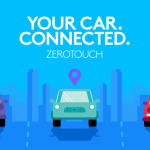
People are seemingly addicted to their smartphones nowadays. You know what I am talking about. Everywhere I go, I see people glued to their phones like zombies. You know what? I am guilty of this too. While I am texting and tweeting while walking or eating in a restaurant, I never do so while driving -- that is just plain stupid. Unfortunately, many people are guilty of texting and driving. It became so prevalent here on Long Island, that some rest stops on the expressway were re-purposed as "text stops", so people can pull over to interact with their tech.
If for whatever reason you need to interact with your phone while driving -- texting, making phone calls, playing music, etc. -- Logitech has a new solution so that it can be done more safely. The Logi ZeroTouch is a car mount for your Android phone, but it is more than that. It is "smart", meaning that your phone knows when it is in the mount, enabling a hands-free experience.
Embark on The Grand Tour with the Top Gear gang

It's been a while since the boys were together on your screen. But Jeremy Clarkson, Richard Hammond and James May are reuniting, but this time the offering has a brand new title. And on this go-around they won't be on the BBC, they'll instead be debuting on Amazon Prime.
Now the brand new show, which is currently in production, has finally got a name. It's been decided it will be called The Grand Tour, because of the way it is being made.
Jaguar Land Rover is building an Uber competitor

Jaguar Land Rover has announced the launch of a new business, which is basically an Uber competitor. According to the company’s press release, the new technology start-up called InMotion will "build apps and on-demand services to overcome modern travel and transport challenges".
The start-up will soon start testing a couple of different services related to car sharing and car ownership. The testing will take place in North America, Europe and Asia "in the coming months".
Startup company launches solution to protect connected cars from cyber attacks

In our increasingly connected world it isn't just your computer or smartphone that can fall victim to attack. The Internet of Things is producing a whole new generation of vulnerable devices.
Not least of these are connected cars where attackers can potentially infiltrate and take control over car systems, even killing the engine as you drive.
Keyless entry makes car theft easy

Thieves can probably steal a bunch of cars with ease, if they are equipped with keyless entry. Those are the results of a new study done by a group of German car security researchers, looking into just how secure the technology is.
According to a news report by Wired, keyless entry for cars is not secure at all. As a matter of fact, out of 24 different cars, from 19 different manufacturers, all have been easily hacked through a method of amplifying the signal from the key fob in the house.
Recent Headlines
Most Commented Stories
BetaNews, your source for breaking tech news, reviews, and in-depth reporting since 1998.
Regional iGaming Content
© 1998-2025 BetaNews, Inc. All Rights Reserved. About Us - Privacy Policy - Cookie Policy - Sitemap.